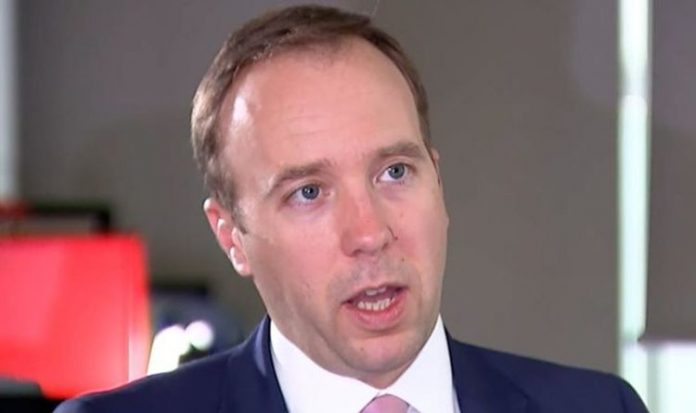Matt Hancock explained as Health Secretary he is paid to worry about a potential second wave of coronavirus as countries in Europe who got the deadly infection under control are beginning to see spikes. It comes as the Government aims to introduce population-wide testing for coronavirus. Mr Hancock said ministers are “working as fast as we can” to achieve the “moonshot” of mass testing so restrictions can be eased.
Speaking to talkRADIO, Mr Hancock said: “I am worried about it but it’s my job to worry.
“What I can tell you is there’s nothing that I know about it that I’m not telling you.
“The surveys on how much the virus is changing showed that the number of cases here is basically flat.
“But all you have to do is look across the Channel and you can see these countries which had the virus completely under control and they’re shooting up again.
READ MORE: Oldham lockdown warning: Hancock told crucial reason shut could be bad
“So of course I’m worried, I’m the Health Secretary in the middle of a global pandemic but I’m not unduly worried.”
Mr Hancock recently launched the National Institute for Health Protection (NIHP) while scrapping Public Health England (PHE).
The new organisation, headed up by Tory peer Dido Harding, will begin work immediately but will become formally operational next spring to reduce disruption during the pandemic, it was announced.
The minister added: “The decision to bring together these organisations now is because we have the situation broadly under control in this country.
But the recent introduction of rapid tests – some providing results in as little as 90 minutes – have changed the way tests can be delivered.
Mr Hancock was speaking as the Government faced criticism for axing the public health body in England in the middle of the pandemic.
Critics have expressed dismay PHE is being dismantled during the crisis, but Mr Hancock said delaying the change would have been “wrong”.
The NIHP will take in some of PHE’s responsibilities along with the NHS Test and Trace programme and the work of the Joint Biosecurity Centre.







